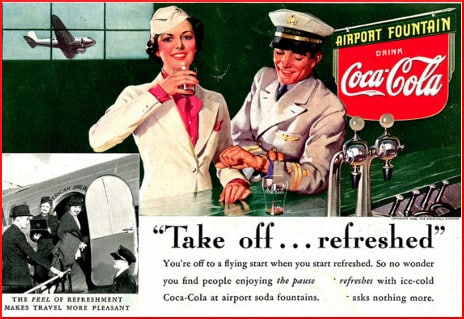
In the final quarter of 2015, the Coca-Cola Company was taking a lot of heat, what with one thing and another. The very well-respected Lancet published an editorial that illustrates the corporation’s talent for shifting blame.
The source of the trouble was the Global Energy Balance Network, or GEBN, a website that initially appeared to be a disinterested party with no ties to the sugar-sweetened beverage industry. The GEBN espoused the dualistic calories in — energy out paradigm, which discounts the increasingly large number of confounding factors that appear to contribute to obesity.
It now seems that many things might lead to, or facilitate, or impact obesity, and to allow for that possibility is only reasonable. But the GEBN took the energy balance model to a new level of weirdness. The problem, according to them, was that…
[…] not many people can sustain energy balance at a low level of physical activity (maintaining a sedentary lifestyle and eating fewer calories).
According to this theory, there is no connection between the obesity epidemic and products that are laden with sugar and other chemicals. However, there is total and exclusive connection between the obesity epidemic and lack of exercise. Voila! Problem solved. Every consumer of soft drinks and junk food would just have to clear their schedules and buy gym memberships and devote the majority of their time to sweating off the calories.
Did we mention that the GEBN turned out to be fueled with Coca-Cola Company money? The New York Times blew its cover. Over the previous five years Coke had supported a number of organizations whose respectability was thrown into question because of these $118 million worth of relationships. Of that, $1.5 million went to set up GEBN — but it was strictly a charitable, educational type of place, and the corporate sugar daddy was absolutely not the boss of it. That was the party line.
Corrosive corruption
Calling the GEBN a “quasi-academicky group that runs a PR campaign,” Jim Hightower wrote:
Coca-Cola’s chief scientist helped create the network, helped to choose its leaders, created its mission statement and designed its website…
This sordid scam is not some low-level ethical hiccup. It comes from the top— the inevitable result of Corporate America’s “business as usual” ethos of greed-fueled, anything-goes dishonesty.
Before year’s end, the GEBN was over — the website folded, the University of Colorado gave back the corporate donation, and the Coke executive who had been in charge of the project went into retirement.
The Lancet editorial spoke for doctors:
Ultimately, the goals of Coca-Cola and those of medical organizations and health researchers that wish to improve public health are very different. Moreover, medical health professionals must guard against any possible conflict or perceived conflict when working towards the overarching goal of improving public health and preventing non-communicable diseases, such as obesity and type 2 diabetes.
Your responses and feedback are welcome!
Source: “Coca-Cola’s funding of health research and partnerships,” TheLancet.com, 10/03/15
Source: “Coca-Cola’s Corrosive Corporate Ethos,” WHAV.net, 12/10/15
Photo credit: dok1 via VisualHunt/CC BY

 FAQs and Media Requests:
FAQs and Media Requests: 











